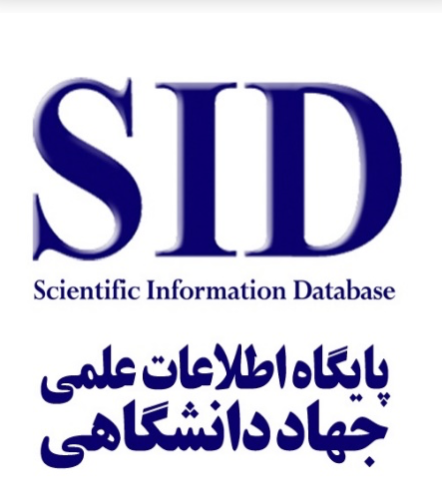About the Journal
Economics and Financial Policymaking is a peer-reviewed, open-access scientific journal that publishes high-quality scholarly research in the fields of financial economics, fiscal policy, macroeconomic and microeconomic policymaking, and related financial and regulatory issues. Published quarterly, the journal serves as a platform for academics, researchers, and policymakers to share original contributions that promote evidence-based economic reforms and policymaking.
With a rigorous double-blind peer-review process and a strong editorial board composed of leading national and international scholars, the journal strives to ensure the publication of original, methodologically sound, and policy-relevant research. The journal invites submissions of theoretical, empirical, applied, and interdisciplinary studies that contribute to the advancement of financial policymaking discourse and practice.
Aims and Scope
The primary aim of Economics and Financial Policymaking is to expand the frontiers of knowledge in the areas of economic and financial policy by publishing cutting-edge research with practical and academic significance. The journal welcomes submissions in, but not limited to, the following areas:
- Fiscal policy formulation and evaluation at national and regional levels
- Interactions between monetary and fiscal policy
- Public finance, government expenditure, and tax policy
- Budget reforms, fiscal transparency, and accountability
- Financial governance and debt management
- Effects of sanctions and currency policies on fiscal outcomes
- Investment strategies for the public and private sectors
- International trade and financial policy coordination
- Performance-based budgeting and financial efficiency in the public sector
- Islamic financial systems and policy implications
Submissions must demonstrate originality, analytical rigor, and relevance for academic inquiry and policymaking practice. The journal also encourages interdisciplinary research that connects economics and finance with law, management, technology, or sociology.
Open Access Statement
Economics and Financial Policymaking is committed to the principles of open access publishing. All articles are freely and permanently available to readers immediately upon publication, without any access restrictions or subscription fees.
This open-access policy supports the global dissemination of knowledge and facilitates the engagement of scholars, policymakers, and practitioners with the latest research in economics and finance. Users are permitted to read, download, copy, distribute, print, or link to the full texts of the articles, provided that proper attribution is given to the original work.
Copyright and License
Authors retain full copyright of their articles published in Economics and Financial Policymaking. The journal publishes all articles under the terms of the Creative Commons Attribution-NonCommercial 4.0 International License (CC BY-NC 4.0).
Under this license:
- Readers may copy, distribute, display, and adapt the work for non-commercial purposes,
- As long as appropriate credit is given to the original source,
- And the work is not used for commercial gain.
This policy ensures that the intellectual property rights of authors are preserved while promoting wide dissemination and academic reuse of their research.
Plagiarism Policy
Economics and Financial Policymaking strictly adheres to academic integrity and ethical publishing standards. All submitted manuscripts are checked for plagiarism using the iThenticate similarity detection software before entering the peer-review process.
Submissions with a similarity index exceeding the acceptable threshold (maximum 15% overall and less than 5% from any single source) are automatically rejected at the preliminary review stage. In cases of significant misconduct or duplicate publication, appropriate actions, including informing the authors’ affiliated institutions, will be taken.
Authors are solely responsible for the originality of their work and must ensure that all sources are properly cited using APA or the journal’s required citation format.
Peer-Review Process
Economics and Financial Policymaking employs a rigorous double-blind peer-review process, where both authors and reviewers remain anonymous throughout the evaluation to ensure impartiality and fairness.
The peer-review process follows these steps:
- Initial Editorial Screening: Assessment of scope, formatting, and originality.
- Plagiarism Check via iThenticate software.
- Assignment to at least two expert reviewers in the relevant field (occasionally three, depending on the subject matter).
- Evaluation Reports: Reviewers submit their comments and recommendations.
- Editorial Decision: Based on reviewer feedback, the manuscript may be accepted, returned for revision, or rejected.
- Revised Submission: Authors revise their manuscript and resubmit.
- Final Review by editors or reviewers before acceptance.
The typical duration of the review process is 4 to 8 weeks, depending on reviewer responsiveness and the complexity of revisions.
Archiving and Repository Policies
Economics and Financial Policymaking is committed to the permanent accessibility and preservation of scholarly content.
Archiving policies include:
- All published articles are archived on the journal's official website with DOI identifiers and full metadata.
- Authors are encouraged to self-archive the final published version (PDF) in institutional repositories, personal websites, and subject-based repositories.
- Authors must ensure that the full citation and link to the official journal page are included when self-archiving.
The journal is also indexed in national repositories and citation databases to ensure broader dissemination and scholarly visibility.

